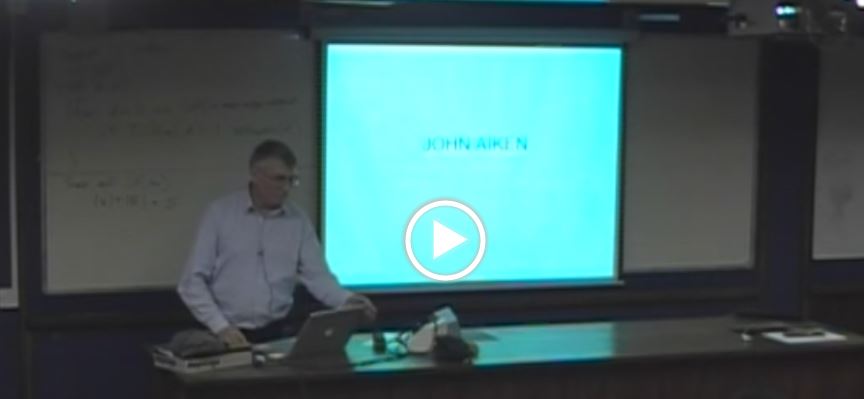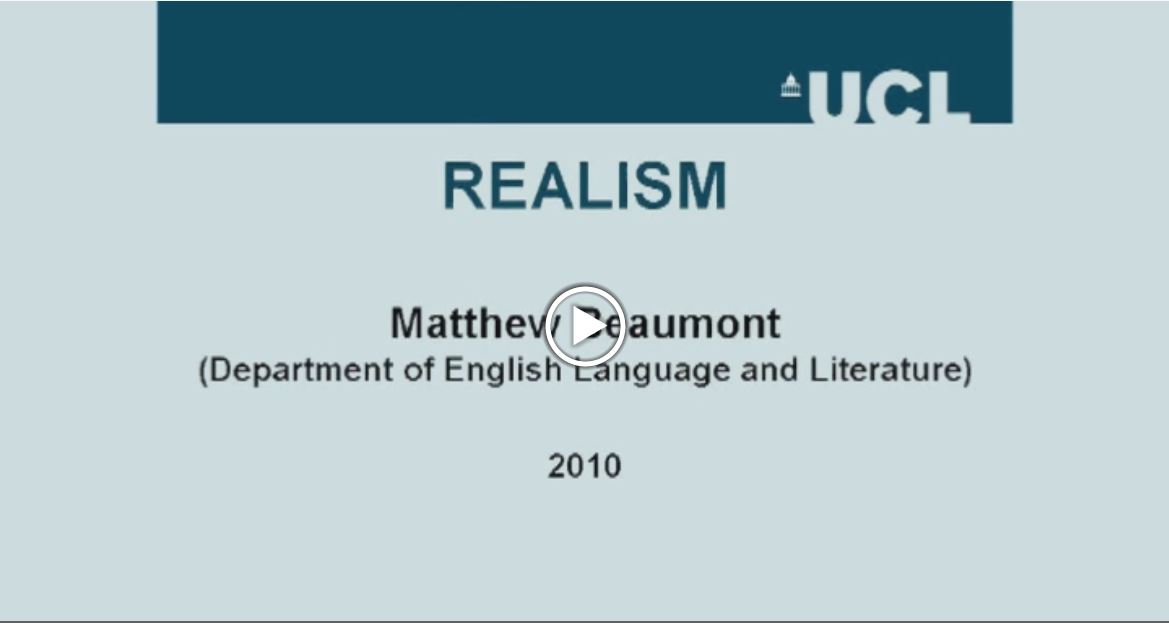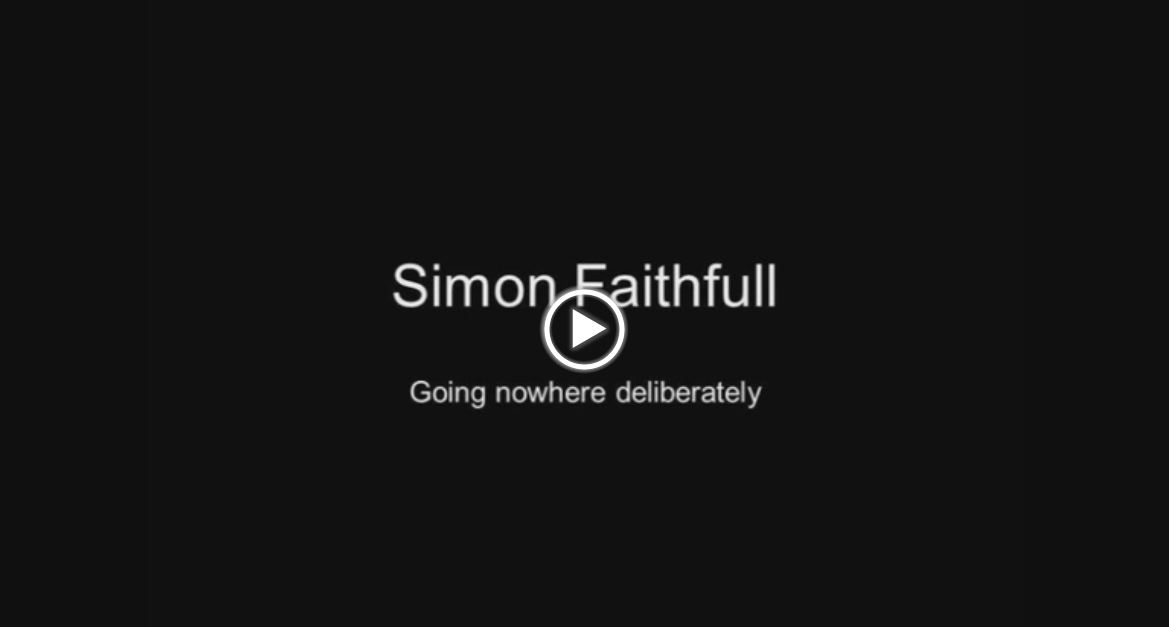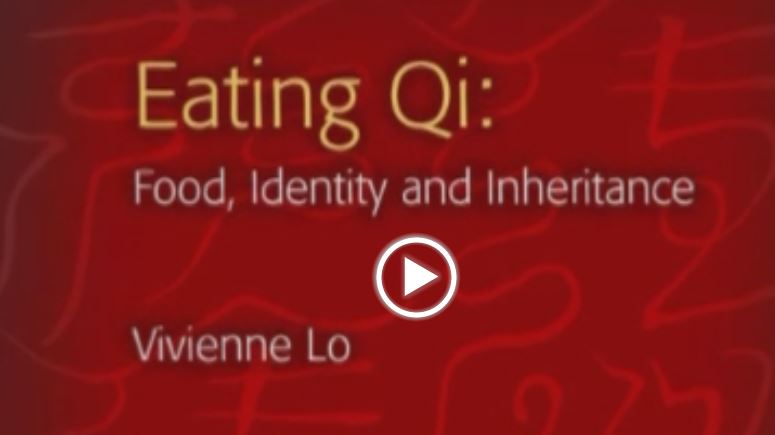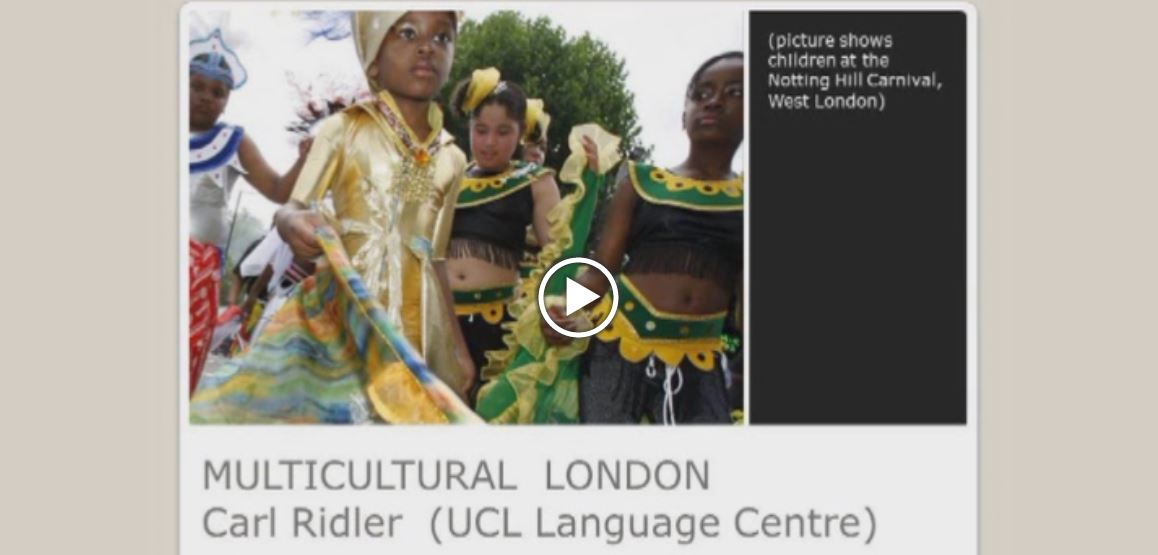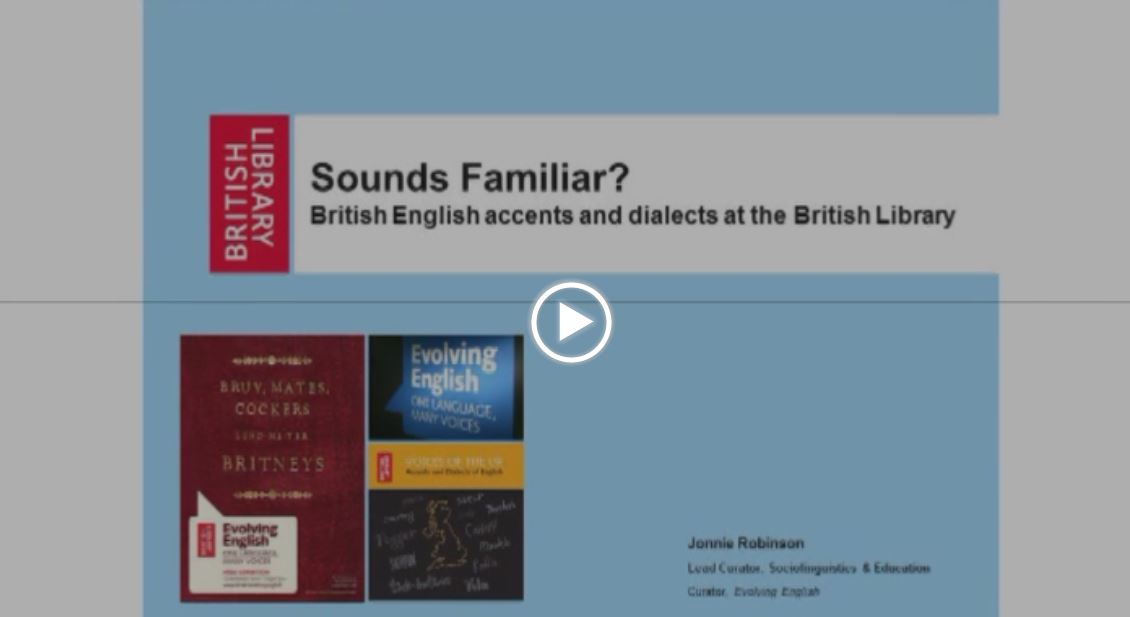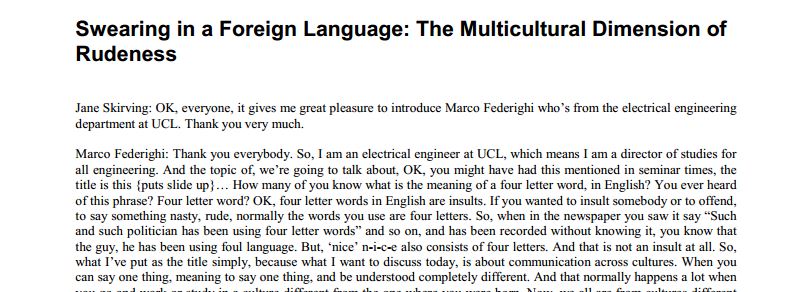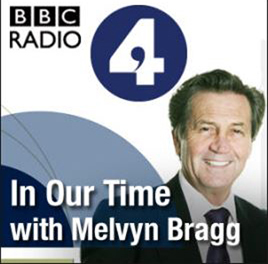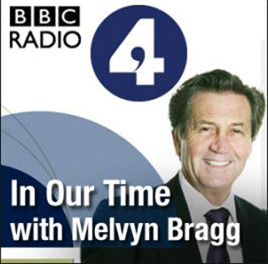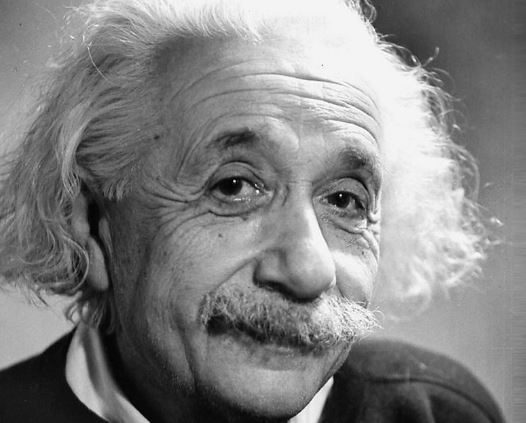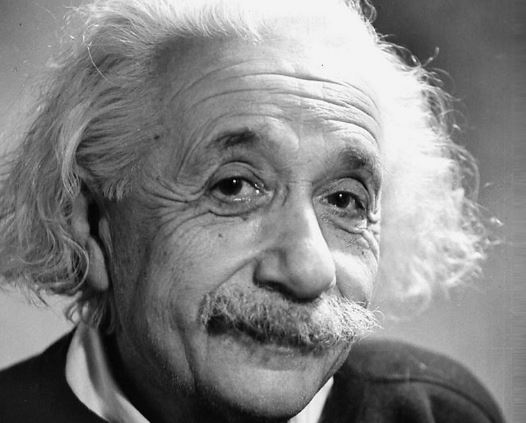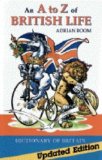Select one or more of these popular tags:
In this documentary, the presenter and art critic Matthew Collings explores how Turner, the artist of light, makes light the vehicle of feeling in his work, and how he found inspiration for that feeling in the waters of the River Thames.
- British-Sign-Language
- Art & Design
- No subtitles
- 60
In this documentary, the presenter and art critic Matthew Collings explores how Turner, the artist of light, makes light the vehicle of feeling in his work, and how he found inspiration for that feeling in the waters of the River Thames.
-
Abstract Art
-
Prof. John Aiken , 2008
Diploma Lecture 2008
- Lectures
- Art & Design
- No subtitles
- 50
Diploma Lecture 2008
-
Art as a Journey - Going Nowhere Deliberately
-
Simon Faithfull
Diploma Lecture 2013
- Lectures
- Art & Design
- No subtitles
- 38
Diploma Lecture 2013
-
Artist as Teacher
-
Phyllida Barlow
Pre-sessional Lecture 2006
- Lectures
- Art & Design
- No subtitles
- 68
Pre-sessional Lecture 2006
-
Eating Qi: Food, Identity and Inheritance
-
Vivienne Lo
Diploma 2011
- Lectures
- Art & Design
- No subtitles
- 61
Diploma 2011
-
Modern Art (with transcript)
-
Prof John Aiken
Diploma Lecture 5 2005-2006
- Lectures
- Art & Design
- No subtitles
- 60
Diploma Lecture 5 2005-2006
-
Multicultural London
-
Carl Ridler
Diploma Lecture 2011
- Lectures
- Art & Design
- No subtitles
- 60
Diploma Lecture 2011
-
Museum Curating (with transcript)
-
Dr Suzanne Keene
GPC Lecture 2005 TO BE REMOVED ?
- Lectures
- Art & Design
- No subtitles
- 60
GPC Lecture 2005 TO BE REMOVED ?
-
Policy Challenges in an Ageing World
-
James Banks
Pre-Sessional 2009
- Lectures
- Art & Design
- No subtitles
- 60
Pre-Sessional 2009
-
Sounds Familiar? British English Accents and Dialects at the British Library
-
Dr Jonnie Robinson
Diploma Lecture 2012
- Lectures
- Art & Design
- No subtitles
- 57
Diploma Lecture 2012
-
Swearing in a Foreign Language: The Multicultural Dimension of Rudeness (with transcript)
-
Marco Federighi
GPC/Pre-sessional Lecture 2008
- Lectures
- Art & Design
- No subtitles
- 51
GPC/Pre-sessional Lecture 2008
-
The English Countryside
-
Professor Munton
Diploma Lecture 2012
- Lectures
- Art & Design
- No subtitles
- 55
Diploma Lecture 2012
-
The French New Wave
-
Roland-François Lack
Diploma 2008
- Lectures
- Art & Design
- Arabic subtitles
- 50
Diploma 2008
-
Book of the Week - I Was Vermeer
-
Frank Wynne
In 1945, a small-time Dutch art dealer was arrested for selling a forgery of a priceless national treasure - a painting by Vermeer - to Hitler's right-hand man. The charge was treason, the only possible sentence death. And yet Han van Meegeren languished in his dank prison cell, incapable of uttering the words that would set him free: 'I am a forger.' This riveting account of greed, hubris, excess, treason and fine art is the story of a failed artist and the greatest forger of all time, who executed a swindle which earned him the equivalent of fifty million dollars and the acclaim of the very critics who had mocked him.
In 1945, a small-time Dutch art dealer was arrested for selling a forgery of a priceless national treasure - a painting by Vermeer - to Hitler's right-hand man. The charge was treason, the only possible sentence death. And yet Han van Meegeren languished in his dank prison cell, incapable of uttering the words that would set him free: 'I am a forger.' This riveting account of greed, hubris, excess, treason and fine art is the story of a failed artist and the greatest forger of all time, who executed a swindle which earned him the equivalent of fifty million dollars and the acclaim of the very critics who had mocked him.
-
Book of the Week - Leni - The Life and Work of Leni Riefenstahl
-
Steven Bach
The definitive biography of Leni Riefenstahl, the woman best known as "Hitler's filmmaker," one of the most fascinating and controversial personalities of the twentieth century. It is the story of huge talent and huger ambition, one that probes the sometimes blurred borders dividing art and beauty from truth and humanity
The definitive biography of Leni Riefenstahl, the woman best known as "Hitler's filmmaker," one of the most fascinating and controversial personalities of the twentieth century. It is the story of huge talent and huger ambition, one that probes the sometimes blurred borders dividing art and beauty from truth and humanity
-
Great Lives - William Hogarth
-
Ian Hislop
Eighteenth-century satirist and painter William Hogarth is nominated by Private Eye editor Ian Hislop. The art historian Andrew Graham-Dixon joins the discussion.
Eighteenth-century satirist and painter William Hogarth is nominated by Private Eye editor Ian Hislop. The art historian Andrew Graham-Dixon joins the discussion.
-
In Our Time - The Artist
-
Melvyn Bragg
With Emma Barker, Lecturer in Art History, The Open University; Thomas Healy, Professor of Renaissance Studies at Birkbeck University of London; Tim Blanning, Professor of Modern European History at the University of Cambridge.
With Emma Barker, Lecturer in Art History, The Open University; Thomas Healy, Professor of Renaissance Studies at Birkbeck University of London; Tim Blanning, Professor of Modern European History at the University of Cambridge.
-
In Our Time - The Baroque
-
Melvyn Bragg
Melvyn Bragg discusses the Baroque - a term used to describe a vast array of painting, music, architecture and sculpture from the 17th and 18th centuries. His guests this week are Tim Blanning, Professor of Modern European History and Fellow of Sidney Sussex College, University of Cambridge; Nigel Aston, Reader in Early Modern History at the University of Leicester; and Helen Hills, Professor of Art History at the University of York
Melvyn Bragg discusses the Baroque - a term used to describe a vast array of painting, music, architecture and sculpture from the 17th and 18th centuries. His guests this week are Tim Blanning, Professor of Modern European History and Fellow of Sidney Sussex College, University of Cambridge; Nigel Aston, Reader in Early Modern History at the University of Leicester; and Helen Hills, Professor of Art History at the University of York
-
In Our Time - The Music of the Spheres
-
Melvyn Bragg
Melvyn Bragg considers the celestial harmonies of the planets, a Pythagorean concept which fascinated astrologists, artists and mathematicians for centuries. He is joined by Peter Forshaw, Postdoctoral Fellow at Birkbeck, University of London
Melvyn Bragg considers the celestial harmonies of the planets, a Pythagorean concept which fascinated astrologists, artists and mathematicians for centuries. He is joined by Peter Forshaw, Postdoctoral Fellow at Birkbeck, University of London
-
In Our Time -The School of Athens
-
Melvyn Bragg
Melvyn Bragg and guests discuss The School of Athens – the fresco painted by the Italian Renaissance painter, Raphael, for Pope Julius II’s private library in the Vatican. The fresco depicts some of the most famous philosophers of ancient times, including Aristotle and Plato, engaged in discussion amidst the splendour of a classical Renaissance chamber. It is considered to be one of the greatest images in Western art not only because of Raphael’s skill as a painter, but also his ability to have created an enduring image that continues to inspire philosophical debate today.
Melvyn Bragg and guests discuss The School of Athens – the fresco painted by the Italian Renaissance painter, Raphael, for Pope Julius II’s private library in the Vatican. The fresco depicts some of the most famous philosophers of ancient times, including Aristotle and Plato, engaged in discussion amidst the splendour of a classical Renaissance chamber. It is considered to be one of the greatest images in Western art not only because of Raphael’s skill as a painter, but also his ability to have created an enduring image that continues to inspire philosophical debate today.
-
Rebel Without A Cause – The James Dean Story
-
Johnny Depp
James Dean is the eternal youthful rebel - the movie idol blessed with the looks, style, talent and attitude that captivated a generation. To mark the 50th anniversary of his death at the wheel of his Porsche on September 30 1955, Johnny Depp presents this profile of one of Hollywood's most popular icons.
James Dean is the eternal youthful rebel - the movie idol blessed with the looks, style, talent and attitude that captivated a generation. To mark the 50th anniversary of his death at the wheel of his Porsche on September 30 1955, Johnny Depp presents this profile of one of Hollywood's most popular icons.
A hundred years on from Albert Einstein's 'miracle year' of 1905, Radio 4 talks to writers and artists who have wrestled with the scientific legacy of modern physics in their work. Michael Frayn's acclaimed stage play, Copenhagen, opened at the National Theatre in 1998. The story of a meeting between two theoretical physicists during the early years of Second World War, it's been hailed as the most successful use of science on the stage.
A hundred years on from Albert Einstein's 'miracle year' of 1905, Radio 4 talks to writers and artists who have wrestled with the scientific legacy of modern physics in their work. Michael Frayn's acclaimed stage play, Copenhagen, opened at the National Theatre in 1998. The story of a meeting between two theoretical physicists during the early years of Second World War, it's been hailed as the most successful use of science on the stage.
With the help of fellow author and mathematician Ian Stewart, Pratchett explains his love of science, his fascination with Einstein and the science behind the fantasy world he's created and sold to more than 20 countries worldwide. "Any sufficiently advanced technology is indistinguishable from magic" said Arthur C Clarke decades ago and it holds true today. Just try and explain how your mobile phone or dvd player works. With the help of fellow author and mathematician Ian Stewart, Pratchett explains his love of science, his fascination with Einstein and the science behind the fantasy world he's created and sold to more than 20 countries worldwide.
With the help of fellow author and mathematician Ian Stewart, Pratchett explains his love of science, his fascination with Einstein and the science behind the fantasy world he's created and sold to more than 20 countries worldwide. "Any sufficiently advanced technology is indistinguishable from magic" said Arthur C Clarke decades ago and it holds true today. Just try and explain how your mobile phone or dvd player works. With the help of fellow author and mathematician Ian Stewart, Pratchett explains his love of science, his fascination with Einstein and the science behind the fantasy world he's created and sold to more than 20 countries worldwide.
Comedian Mark Steel has delved into the great man's life and found a great deal to laugh about, if only in theory. "Two things are infinite: the universe and human stupidity; and I'm not sure about the universe." (AE). One doesn't normally associate humour with physics but Einstein has proved the exception, at least for two artists. The first is New Yorker Sid Harris who's been churning out science cartoons for reputable journals since the late sixties.Comedian Mark Steel has delved into the great man's life and found a great deal to laugh about, if only in theory.
Comedian Mark Steel has delved into the great man's life and found a great deal to laugh about, if only in theory. "Two things are infinite: the universe and human stupidity; and I'm not sure about the universe." (AE). One doesn't normally associate humour with physics but Einstein has proved the exception, at least for two artists. The first is New Yorker Sid Harris who's been churning out science cartoons for reputable journals since the late sixties.Comedian Mark Steel has delved into the great man's life and found a great deal to laugh about, if only in theory.
Artist Cornelia Parker explores her ground-breaking (literally) work Cold Dark Matter: An Exploded View which involved getting the army to blow up a garden shed in order to re-create the first moments after the creation of space and time. Artist Cornelia Parker explores her ground-breaking (literally) work Cold Dark Matter: An Exploded View which involved getting the army to blow up a garden shed in order to re-create the first moments after the creation of space and time. As Cornelia Parker discusses her inspiration for this piece and its aims, cosmologists discuss how the Einstein's ideas shaped our notion of how the universe and everything in it got started.
Artist Cornelia Parker explores her ground-breaking (literally) work Cold Dark Matter: An Exploded View which involved getting the army to blow up a garden shed in order to re-create the first moments after the creation of space and time. Artist Cornelia Parker explores her ground-breaking (literally) work Cold Dark Matter: An Exploded View which involved getting the army to blow up a garden shed in order to re-create the first moments after the creation of space and time. As Cornelia Parker discusses her inspiration for this piece and its aims, cosmologists discuss how the Einstein's ideas shaped our notion of how the universe and everything in it got started.
-
A History of British Art
-
Andrew Graham-Dixon , BBC Books , 1996
This book tells the story of art in Britain since the Middle Ages. It shows how the British are a deeply visual people, making and breaking images through the centuries to strengthen their hopes and hatreds and, occasionally, to reveal themselves as they really are.
- 0-563-370440 55
- Special Interest
- Art & Design
- 1 copies
- C1 C2
This book tells the story of art in Britain since the Middle Ages. It shows how the British are a deeply visual people, making and breaking images through the centuries to strengthen their hopes and hatreds and, occasionally, to reveal themselves as they really are.
-
A History of Reading
-
Alberto Manguel , HarperCollins Publishers , 1996
This history of reading discusses all aspects associated with the act, including how we read, the first kinds of reading materials and the development of books, and how books are written, translated, and enjoyed.
- 0-002-55006-7 1943
- Special Interest
- Art & Design
- 1 copies
- C1 C2
This history of reading discusses all aspects associated with the act, including how we read, the first kinds of reading materials and the development of books, and how books are written, translated, and enjoyed.
-
A World History of Art
-
Hugh Honour & John Fleming , Laurence King Publishing , 2009
For over a quarter of a century this art historical tour de force has consistently proved the classic introduction to humankind's artistic heritage. From our Paleolithic past to our digitized present, every continent and culture is covered in an articulate and well-balanced discussion - a broad and epic canvas that omits none of the fine detail.
- 9781856695848 9890
- Special Interest
- Art & Design
- 1 copies
- C1 C2
For over a quarter of a century this art historical tour de force has consistently proved the classic introduction to humankind's artistic heritage. From our Paleolithic past to our digitized present, every continent and culture is covered in an articulate and well-balanced discussion - a broad and epic canvas that omits none of the fine detail.
-
An A-Z of British Life
-
Adrian Room , Oxford University Press , 1990
This book gives up-to-date information on all aspects of British life and institutions. It explains everything that other nationalities find interesting, amusing, puzzling or even frustrating about Britain and the British
- 0-194-31144-9 2559
- Special Interest
- Art & Design
- 1 copies
- C1 C2
This book gives up-to-date information on all aspects of British life and institutions. It explains everything that other nationalities find interesting, amusing, puzzling or even frustrating about Britain and the British


